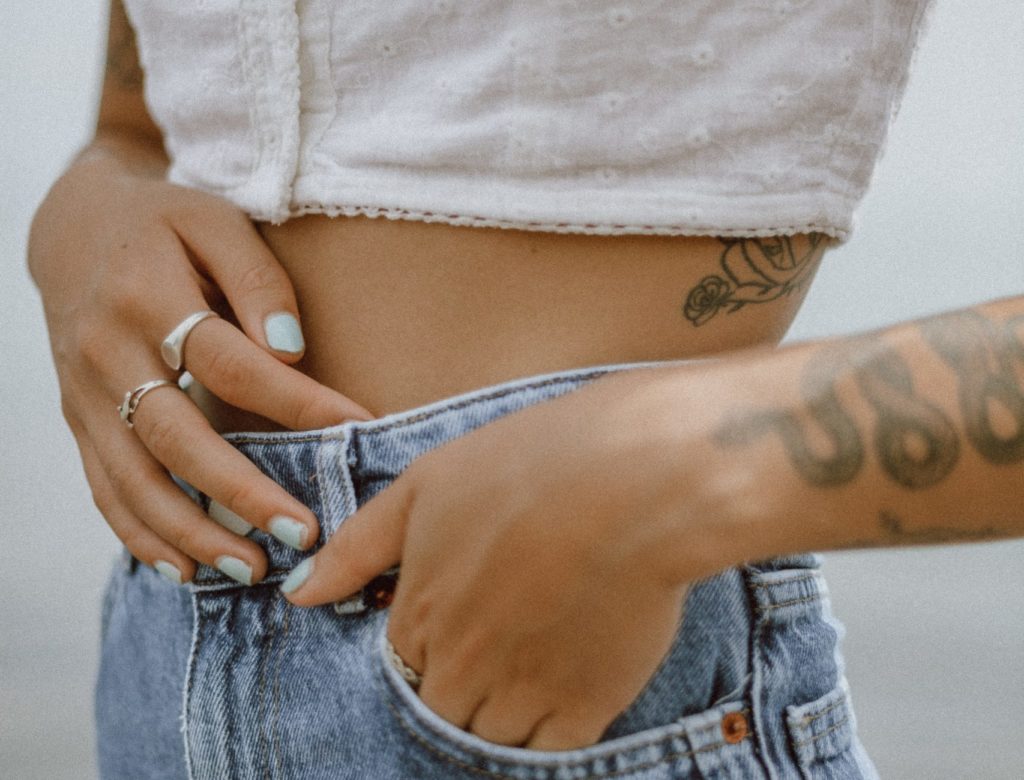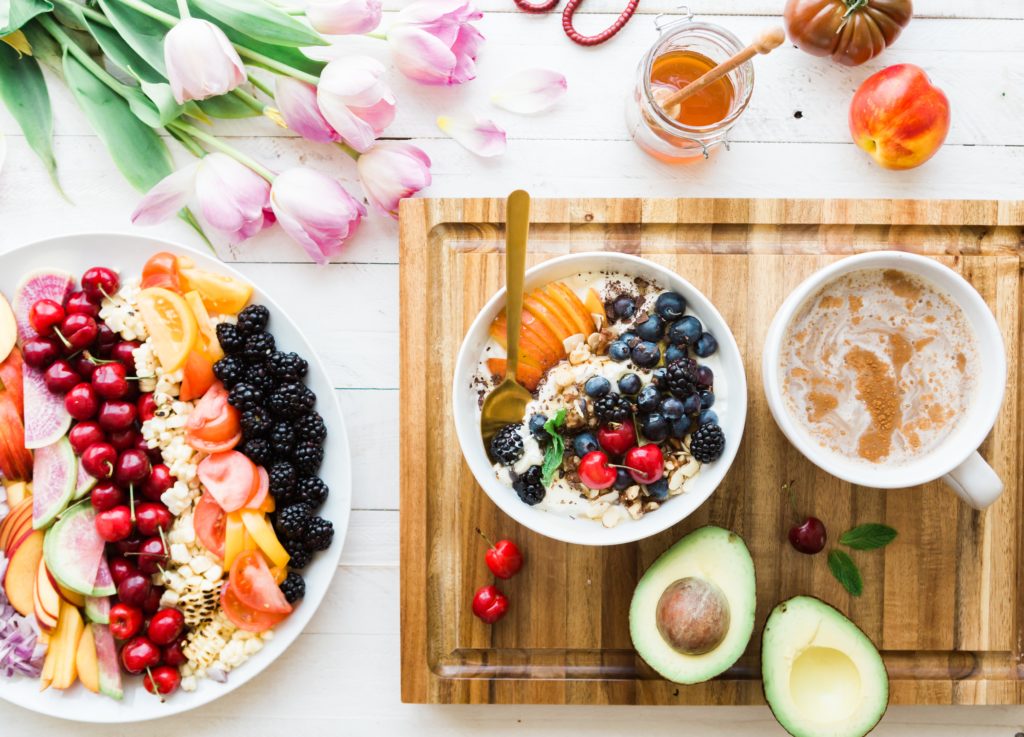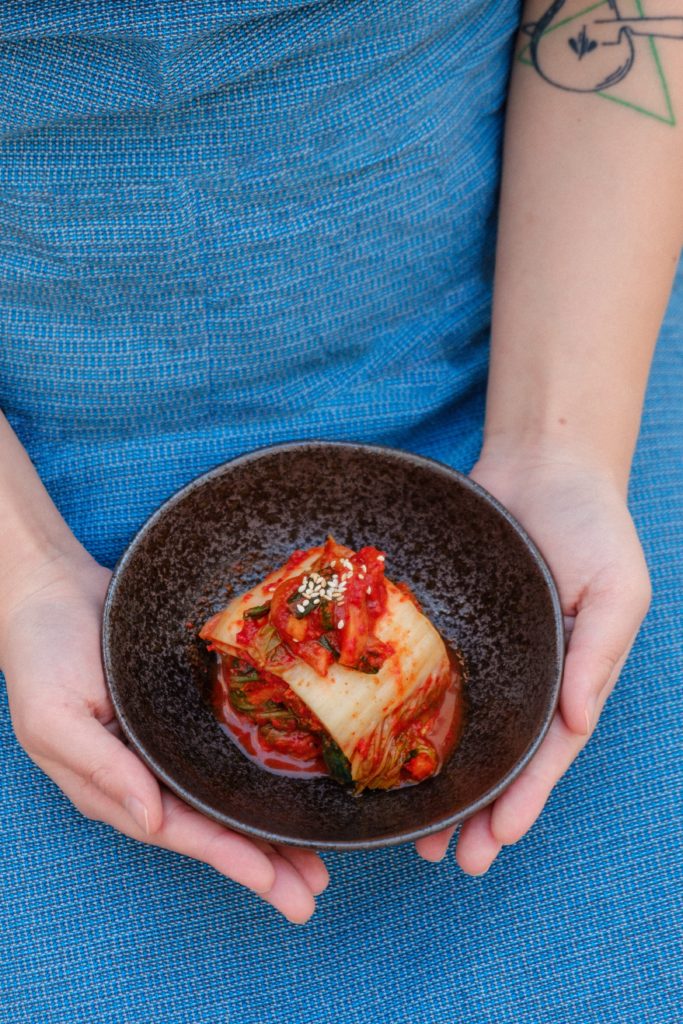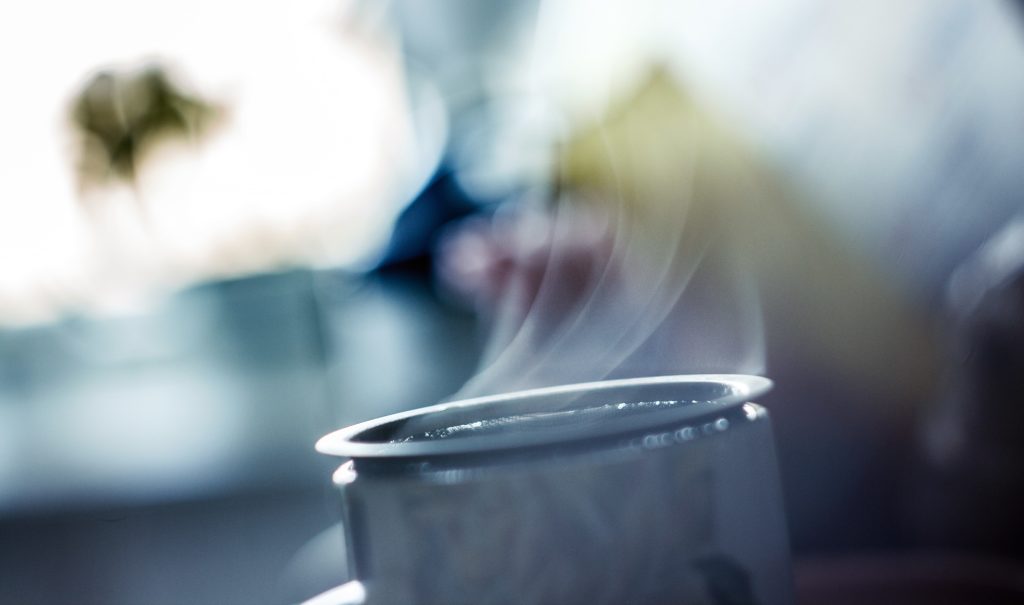
Is your body up for the task?
This was a question actor Tom Hopper began contemplating a few years ago. Even though he appeared to be in great shape, he felt pretty damn terrible. He told PEOPLE magazine, “On the outside, I looked like a guy who went to the gym. I wasn’t particularly lean or anything, but my body was buffering, whether it was my metabolism or because of my youth. But inside I was a mess. I was having these headaches all the time, and I would get sick all the time.”
It wasn’t until he shifted his focus from the aesthetics of health to addressing the inflammation and imbalance in his body with a better diet that he finally started to feel truly healthy.
I’m not surprised by this interview because I believe what we put in our bodies—and our gut health in particular—is so important to how we function and how we feel. Especially as actors and people in creative fields, it’s super important to be able to perform your best, especially under pressure!

When you’re feeling sluggish, experience chronic headaches or digestive issues, or just can’t think straight, it just won’t cut it. And it all starts in our gut!
Read on to learn 3 ways to improve your gut health, and keep bringing your A-game to what you love doing most.
You can probably already guess some of the ways to improve your gut health, because they are also basic healthy habits. It’s important for you to exercise regularly, to get enough sleep (and quality rest), and eat a variety of real, whole foods.
Here are a few additional ways to improve your gut health that you may not have thought about before.
Take a Probiotic Supplement
Probiotics are live microorganisms, mainly bacteria and yeast. Research has shown that these microbes may prevent inflammation within the digestive system and promote a strong gut microbiome.
You can find probiotics in certain foods and supplements, particularly in fermented foods, like yogurt, sauerkraut, kefir, tempeh, and the popular Korean staple, kimchi. It’s easy to start incorporating these foods in your diet, but be sure to pay attention to labels and ingredients, as all brands are not created equally.
For yogurt, I recommend plain sheep or goat yogurt, as it is more easily digestible. Look for kefir that specifically says on the label it contains active cultures. (FYI, Redwood Hill Farm offers an award-winning kefir made from organic, humane-certified goat milk). Kombucha is also a probiotic food, but since it’s born of sugar, I am wary to recommend it, but if you really enjoy this fermented beverage, be sure to sip in moderation.
A healthy probiotic colony in our gut promotes amazing digestion simply by aiding our nutrient absorption. And it supports a properly functioning immune system, so eating more probiotic-rich foods and taking really good probiotic supplements are two ways to help keep the bacteria in balance.
And on a side note—although serotonin (yep, the feel good hormone) is manufactured in the brain, where it performs its primary feel good functions, some 90% of our serotonin supply is found in the digestive tract and in blood platelets. So not only is your immune system housed in your belly, so are your mood enhancers. Yeah, your gut health is kind of a big deal!
Eat Prebiotic Foods
Now, establishing a little colony in your gut is one thing… Keeping it healthy and thriving is another. That is where prebiotics come into play.
Prebiotic are a group of nutrients – essentially specific plant fibers that you cannot digest but probiotics love to feed on. So prebiotics are also essential to gut health, as they help build and nourish our probiotic colonies. It’s a very symbiotic relationship.
The good news for us humans is that many of the whole foods that are healthy for us are obviously healthy for the gut’s microbes as well. So a diet including plenty of whole grains is a good place to start. Other prebiotic-rich foods include asparagus, bananas, garlic, Jerusalem artichoke and onions.
Chicory is another prebiotic, and if you’re trying to cut back on coffee, chicory root blends taste similar to your regular java dose without the caffeine. The brand Teeccino is an awesome herbal coffee alternative—way less acidity, no caffeine and tastes delish!
A simple way to think of the role of probiotics in your gut is to imagine a parking lot. In this parking lot, you only have a certain number of spaces available, and the spots are filled up by what you’re putting in your stomach – be it good, whole foods or processed junk food.
When you supplement your diet with probiotics on a regular basis, you are essentially reserving parking spaces for the good microbes and ensuring that there’s always enough beneficial bacteria present in our gut to digest our food smoothly and safely. And prebiotics are a little like your gut’s valet, showing the probiotics where they can park.
And that processed junk food can hitchhike to another destination. This lot is full! 
Stay Away From Artificial Sweeteners
I bet you are expecting me to tell you to give up sugar, but some natural sugar is not only inevitable in a healthy diet, but not necessarily bad. We just eat way too much of it overall in this country, and that is where the addiction begins.
You may think sugar alternatives are healthy options, but they are highly deceiving. It’s possible to see the negative effects of too much sugar on your blood glucose levels and your gut health by just ingesting too many artificial sweeteners.
Gut dysbiosis, an imbalance of gut microbes, is often associated with too much sugar. Aspartame (AKA NutraSweet, Equal and Canderel) “increases the number of some bacterial strains that are linked with metabolic disease” such as diabetes and heart disease.
These so-called “healthy” alternatives show up in a lot of diet foods like diet soda, sugar-free ice cream and gum, reduced-calorie fruit juice, flavored yogurt, and even sugar-free candy. So be sure to check the ingredient lists, or better yet, stick to unprocessed foods.
If you’re looking for healthy processed sugar alternatives—try organic maple syrup, blackstrap molasses, raw honey, monkfruit extract and/or coconut sugar.
With the industry (and world) opening up more and more, we need to feel our best so we can dive back into our creative passions and start reconnecting again. These are just three of the ways I improve my gut health, and I encourage you to give them a try this month and see how you feel.
Let me know how the experience goes in the comments below or by posting in the Badass Beauty Club on Facebook.
LOVE + blissful bellies!























+ show Comments
- Hide Comments
add a comment